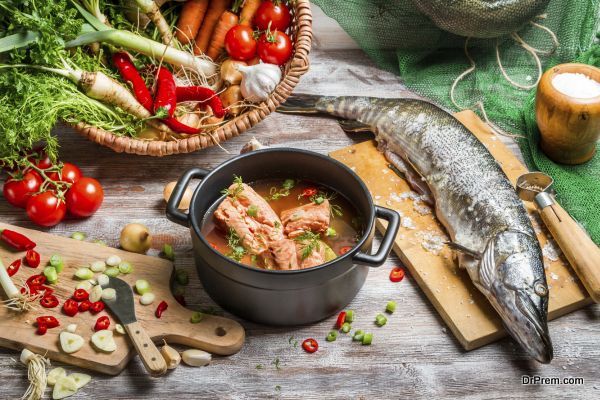A shocking 76 million cases and 5000 deaths related to food poisoning are reported in the U.S. every year. And this figure is only for one country. While children, pregnant women and elderly individuals are more at risk of being affected by food poisoning, there is no doubt that anyone can be adversely affected by the same issue. The good thing is that there are no elaborate safety precautions that need to be followed here. All we need to do is follow a few simple tips in our daily routine to prevent food poisoning, including the ones mentioned below.
Wash your hands before handling food
It is considered important to wash your hands thoroughly with an antibacterial soap or hand wash before handling food. This would help wash off the dirt and bacteria that would accumulated on your hand over the course of the day, thus preventing them from being transferred onto the food. Also make it a point to wash your hands before and after eating meals as well as before and after using the toilet.
Keep raw and cooked foods far apart from each other
Raw meat, fish and poultry, etc. tend to contain a lot of bacteria in them. If you bring them near the cooked foods, the bacteria will immediately move over to the latter and contaminate it. So keep raw foods and cooked foods away from each other, preferably using different utensils to handle the same as well.
Ditch the raw eggs
Raw eggs are commonly used in several dough, cookie and cake batters. While we cannot stop using them for the same purposes, we can try to avoid eating these items when are still uncooked. Raw eggs contain a lot of salmonella bacteria which is known to cause food poisoning. So the next time you attempt to have a small taste of that cake batter or cookie dough, remember this: no raw eggs!
Keep the foods stored in safe temperatures
It is imperative that you do not leave cooked food out in the open at room temperature for more than a couple of hours, especially on a hot day. Refrigerate these foods the moment they cool down as placing hot food inside would cause the latter to encourage bacteria buildup. Never thaw the food at room temperature as well as this will double the bacteria growth on it.
It is also imperative that your fridge functions at less than 5 degrees Celsius constantly in order to preserve the foods properly. Anything above than that would lead to the foods decaying faster.
Cook foods at right temperature
You may think that the chicken you kept in the oven is cooked, considering it has turned golden brown in color. However, it may not be so. Not cooking foods at the right temperature would lead to partially cooked foods that will harbor plenty of bacteria, thus causing food poisoning. While soups and stews need to be boiled at above 70 degrees Celsius, turkey and chicken should reach a temperature of 165 degrees Celsius in order to be cooked properly. The temperature also varies with the foods that you cook, including 160 degrees Celsius for hamburgers and 145 degrees Celsius.
Throw out foods you doubt are contaminated
Sometimes, a particular food that has been sitting in the refrigerator may not smell or look bad. But it would have started harboring bacteria without you even noticing it. So make sure that anything that has been in the fridge for more than four days goes out the door irrespective of how it looks or smells.
Keep work counters and dish cloths clean
Clean kitchen countertop and any other work surface thoroughly with a disinfectant after cooking your meals on them. Hot, soapy water will also do a good job in getting rid of any bacteria that might be sticking to these surfaces from the foods you cooked. Also, make it a point to wash the dish cloths regularly in hot water, for unclean dish cloths can contain up to 100 billion bacteria after being used continuously for a week.
Food poisoning is on the rise nowadays, leading to several health related complications and even deaths. It is therefore imperative to prevent the condition by following safe and clean habits while handling foods and preparing meals.











